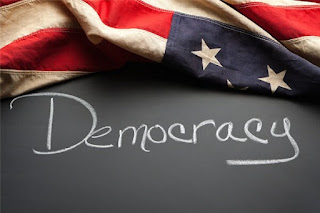Kaushik Basu
Japan Times
Originally posted 24 DEC 21
Here are two excerpts:
Most people do not appreciate the extent to which civilizations depend on pillars of norms and conventions. Some of these have evolved organically over time, while others required deliberation and collective action. If one of the pillars buckles, a civilization could well collapse.
(cut)
When a vast majority of a country’s population is ready to rebel, as seemed to be the case in Belarus in the summer of 2020, and the leader has limited capacity to suppress the uprising, how can he or she prevail?
To address this question, I developed an allegory I call the “Incarceration Game.” Some 1 million citizens of a particular country want to join a rebellion to overthrow the tyrannical leader who can catch and jail at most 100 rebels. With such a low probability of being caught, each person is ready to take to the streets. The leader’s situation looks hopeless.
Suppose he nonetheless announces that he will incarcerate the 100 oldest people who join the uprising. At first sight, it appears that this will not stop the rebellion, because the vast number of young people will have no reason to abandon it. But, if people’s ages are common knowledge, the outcome will be different. After the leader’s announcement, the 100 oldest people will not join the revolt, because the pain of certain incarceration is too great even for a good cause. Knowing this, the next 100 oldest people also will not take part in the revolution, and nor will the 100 oldest people after them. By induction, no one will. The streets will be empty.
Authoritarian rulers’ intentional or unwitting use of such an approach may help to explain why earlier revolts crumbled when on the verge of success. To demonstrate this empirically in history or in recent cases, like that of Belarus or Myanmar, will require data that we do not have yet. The incarceration game is a purely logical conjecture. What it does, importantly, is to remind us that toppling a dictator requires a strategy to foil such a tactic. Good intentions alone are not sufficient; the upholding of democracy needs a strategy based on sound analysis.




